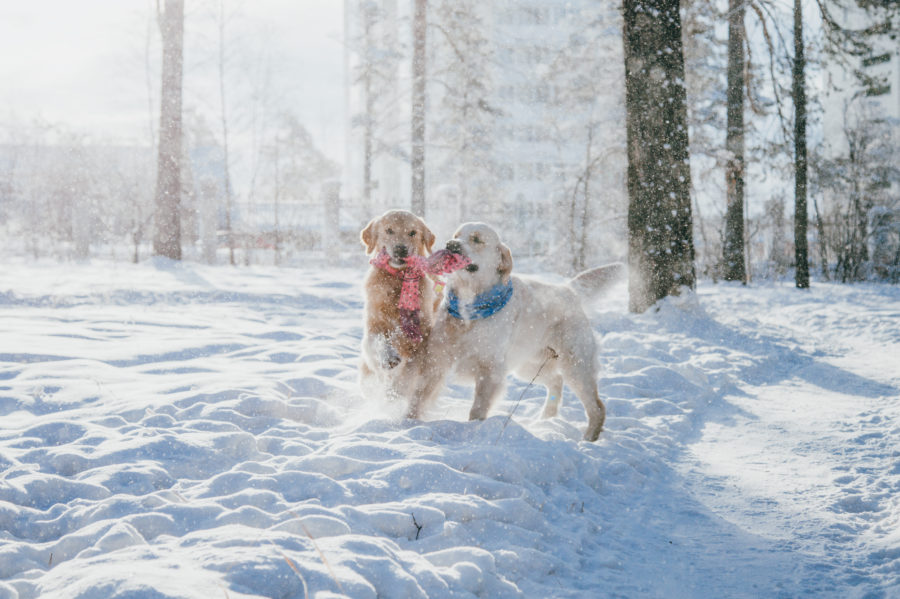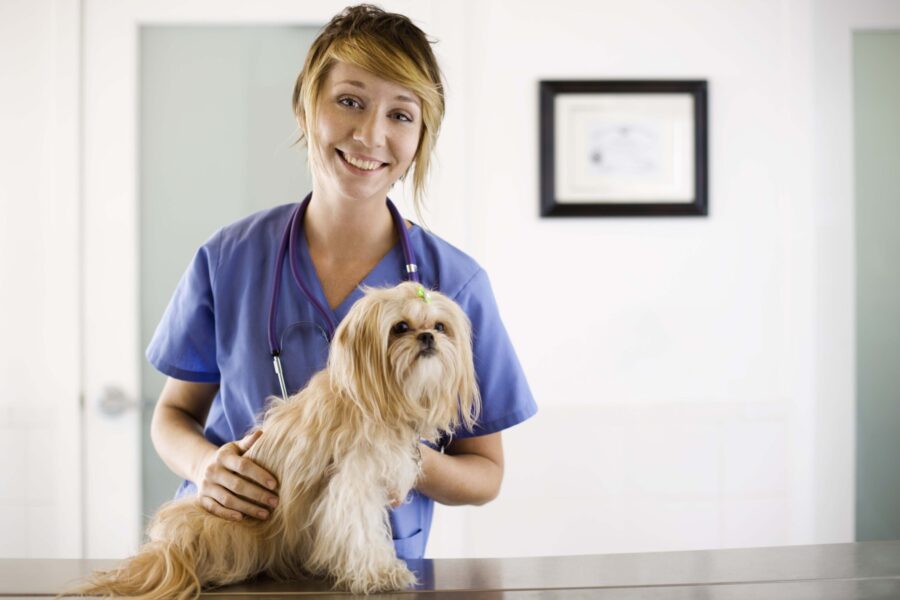Want to join or organize a playgroup for your dog? Take these tips and tactics into consideration before setting your first date.
It used to be that exercising the dog entailed little more than snapping on his leash and going for a stroll around the block. More recently, dog parks have sprung up as a way to exercise dog while giving them some time to socialize with other canines and people. The latest way to fulfill our canines’ needs for physical activity and socialization? Doggy play dates!
A doggy play date is just what it sounds like — a period when a few pooches are regularly brought together to enjoy each other’s company within a controlled setting. Doggy playgroups usually involve a small number of dogs and their owners, who meet at an agreed time and place. Play dates ensure optimal physical health through established play and exercise, while giving the dogs a regular opportunity to socialize.
Forming a doggy playgroup may sound as simple as finding a group of like-minded folks with dogs, but there are some things to keep in mind. Before creating a playgroup, or arranging play dates with an existing group, read over the following tips and suggestions for a positive experience.
9 tips for safe and successful play dates
- Does your dog interact with unfamiliar dogs in a friendly and confident way? If he’s more of a loner who doesn’t get on that well with other pooches, a playgroup may not be for him.
- A playgroup can consist of a small group of friends, neighbors or family members who also have dogs. If you don’t want to start your own group, and would rather join an existing one, check at your vet’s office, grooming salon or pet supply store to see if they have any contacts.
- An informal doggy playgroup shouldn’t include more than a few dogs. It could range from just two to around half a dozen dogs.
- While play dates may take part in someone’s backyard after the dogs have become firm friends, it’s best to meet in a neutral spot, such as a park, when starting out. Either way, choose a safe setting away from traffic, and one that’s ideally fenced in.
- Consider your dog’s play style. Not all dogs enjoy rough-housing, for example, so it’s important that the dogs in the group enjoy similar types of activity. “Play dates are a great outing for the modern dog, but they benefit from some forethought,” says Laura VanArendonk Baugh, CPDT-KA KPACTP. “Dogs’ play styles can differ dramatically and a dog who prefers to chase, for example, may feel bullied or threatened if paired with a dog who prefers to wrestle.”
- Also consider your dog’s breed (or breed mix) and size. Different breeds have different play styles and levels of stamina, so it’s important that there are at least one or two dogs in the group who can play safely with your own canine, whether he’s a Dachshund or a Great Pyrenees.
- Further to the above point, you may be able to find a breed-specific doggy playgroup, depending on where you live. One doggy parent says he takes his Yorkie to meetups with fellow Yorkies, so socialization takes place between the same breed and size of dog; because the owners of the dogs are familiar with the behavior of the breed, they are able to identify unwanted conduct.
- Be sure your dog is well-trained, and will obey your commands in a group situation. “I feel a solid, positively-trained recall is essential for these meetings, so you can quickly call your dog back from any potentially uncomfortable encounter without adding to a stressful situation,” says Linda.
- Always supervise the dogs during a play date. Watching your pooch play is as important as the play itself, as it could prevent an aggressive situation from occurring. Know that harmless canine play has a different look to fighting “play”. The American Kennel Club (AKC) states that if the dog has a closed mouth, is emitting a low-toned growl, exhibits flat ears and a stiff body with quick movements, as opposed to bouncy and playful, the chances are that play time is over and a fight may ensure. Recall your dog to defuse the situation.
Play dates maintain canine socialization skills
“Socialization is important to the overall well-being of your dog because it will provide him with the ability to develop skills to cope with new experiences in a positive way, therefore reducing his stress,” states the Association of Professional Dog Trainers.
In her book The Other End of the Leash, Dr. Patricia McConnell, PhD, a Certified Applied Animal Behaviorist, adds that during adolescence dogs become a bit more wary of unfamiliar people and animals, and will react with shyness. She refers to this as “juvenile-onset shyness” and recommends continued socialization as a way to combat it.
Forming or joining a doggy playgroup, and taking your dog to regular play dates, can help maintain these important socialization skills.
Play dates aren’t just for puppies, but for dogs of all ages. Our canine companions are naturally active and social animals, so fostering these connections with a playgroup that meets on a regular basis is a wonderful way to keep them healthy and happy.








